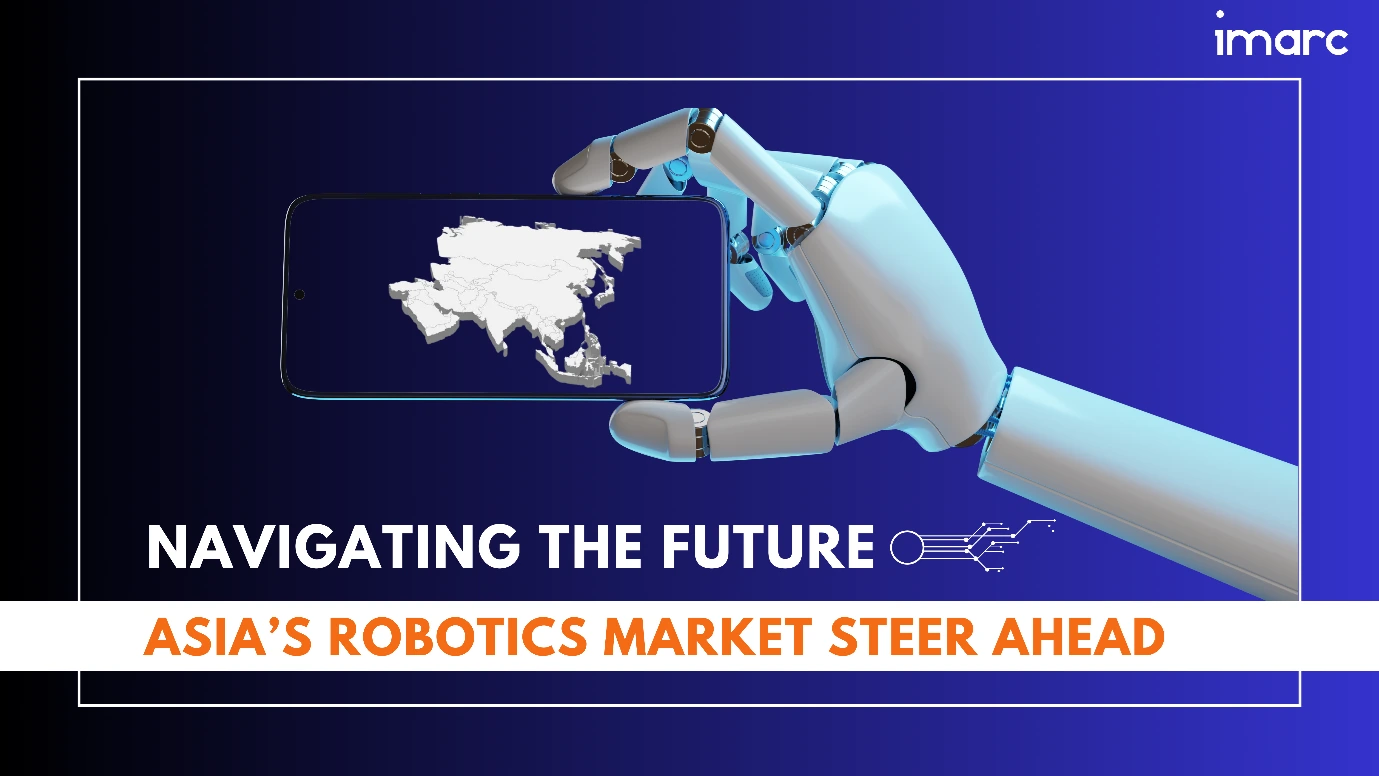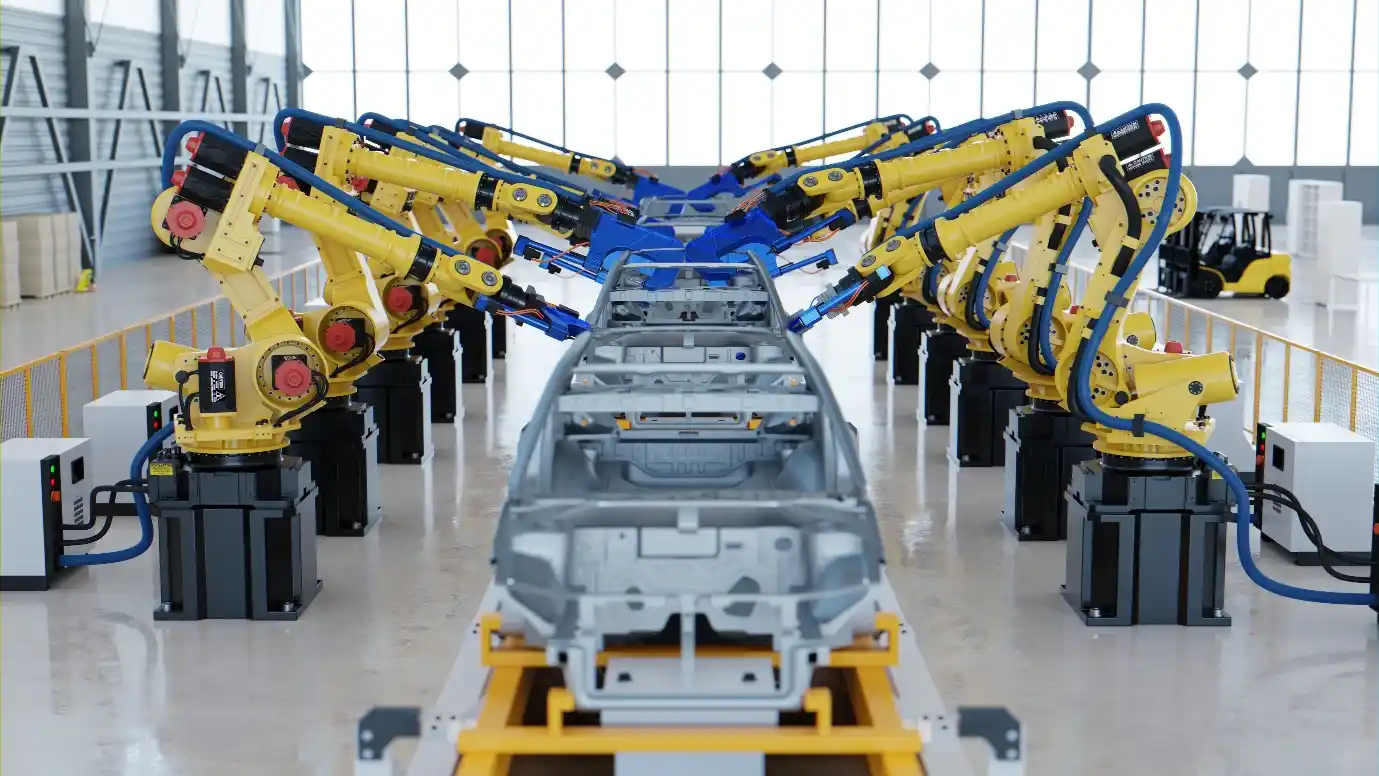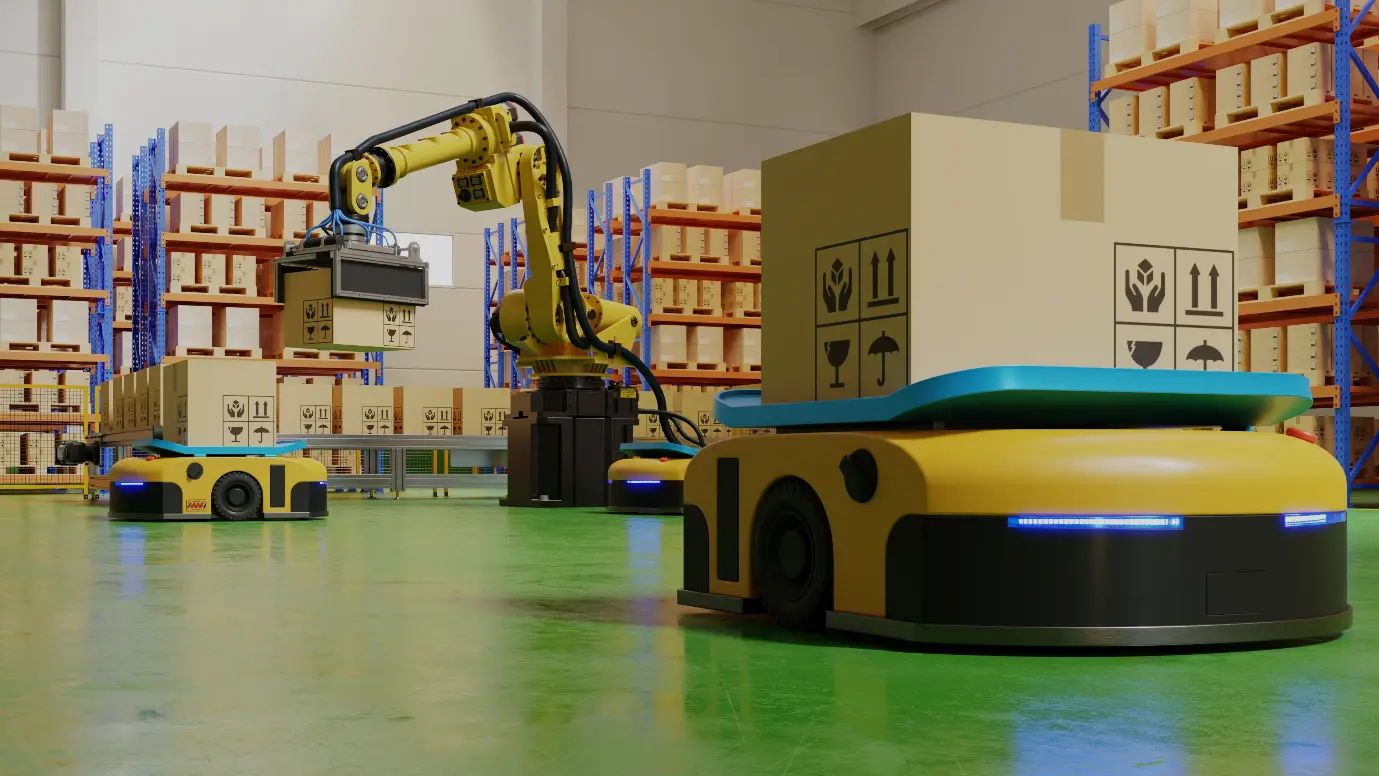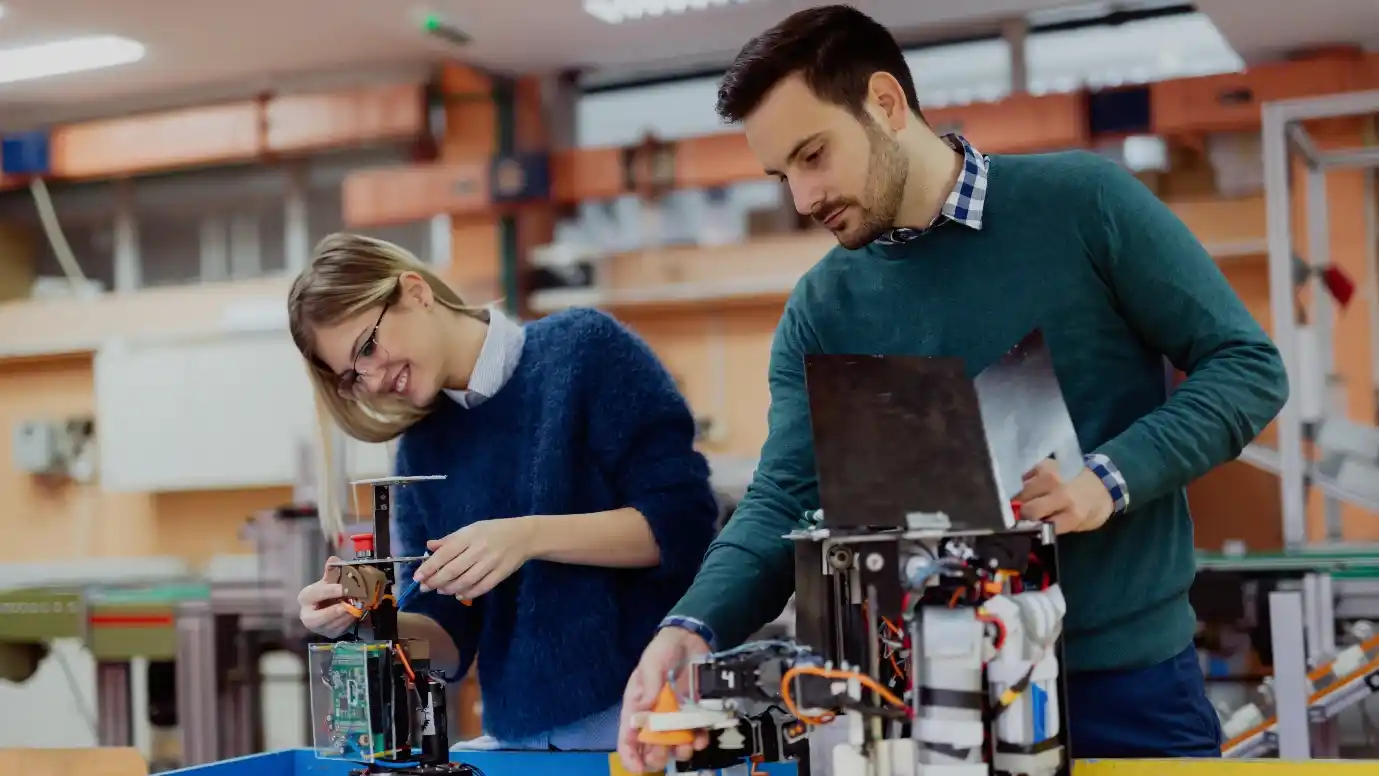Navigating the Future: Asia's Robotics Market Steers Ahead

Robotics is the branch of engineering that deals with designing, constructing, and operating robots. Robots are programmable machines capable of carrying out tasks autonomously or semi-autonomously. Major types of robotics include industrial and service robots, combining elements of mechanical engineering, electrical engineering, computer science, and artificial intelligence (AI). Industrial robots encompass articulated, Cartesian, SCARA, and cylindrical robots. Service robots serve personal, domestic, and professional purposes, used in various applications, such as household tasks, entertainment, defense, fieldwork, logistics, healthcare, infrastructure, mobile platforms, and cleaning, and more. Robotics can efficiently and accurately perform tasks in environments that may be hazardous or challenging for humans. Robots reduce human labor, enhance production efficiency, lower costs, and improve product quality in various industries. Robotics is further categorized into types such as industrial robotics, food robotics, warehouse robotics, smart robotics, automotive robotics, agriculture robotics, logistics robotics, construction robotics, space robotics, and others. Nowadays, robotics has become an important part of many industries, even being used to explore deep oceans and space. Additionally, it is employed in creating autonomous vehicles, performing surgery, and conducting medical diagnoses.
Unveiling the Momentum Behind the Booming Robotics Market
According to a study by IMARC Group, the global robotics market is expected to reach US$ 102.4 Billion by 2028. The demand for robotics has increased substantially over time. Various factors contributing to the market's growth are outlined below:
Increasing Demand for Automation: Manufacturers are widely adopting smart technologies into manufacturing processes to enhance efficiency, reduce costs, and improve overall production processes. The concept of Industry 4.0 has led to increased adoption of robotics for automation in manufacturing firms.

Growth in E-commerce: The e-commerce market is booming worldwide, increasing the demand for efficient and speedy logistics. Autonomous vehicles and robotic arms are used to optimize warehouse operations. Due to this, the demand for robotics has increased in the e-commerce sector.

Government Initiatives: Governments are investing in and promoting the research and development of robotics. These initiatives aim to boost technological innovation, create jobs, and enhance national competitiveness. For instance, the Government of India has planned to boost robotics and the manufacturing and export of drones under the Production Linked Incentive (PLI) scheme.

Technological Advancements: Robotics technology is continuously advancing through various innovations such as artificial intelligence, machine learning, and sensor technologies. These technologies make robots more intelligent, versatile, and capable of handling complex tasks.

In addition to this, the COVID-19 pandemic has highlighted the significance of robotics across various sectors. Tasks such as disinfection, temperature screening, and delivery services, aimed at reducing the risk of virus transmission, were effectively carried out by robots during the pandemic. Therefore, key players such as ABB Robotics, FANUC America, Yaskawa Electric Corporation, and many others are heavily investing in the development of more efficient and cost-effective robotics technology.
Revolutionizing Industries: The Regional Tapestry of the Booming Robotics Market
According to the World Robotics 2023 report, Asia has secured the largest market share in the robotics market, followed by Europe and America. In Asia, 73% of all newly deployed robots were installed, compared to 15% in Europe and 10% in the Americas. Approximately 553,052 industrial robots were installed worldwide, with a year-on-year growth rate of 5%.
China, Japan, and the Republic of Korea boast the biggest industrial robotics markets in Asia. In 2022, new installations in China, Japan, and Korea increased by 5%, 9%, and 1%, respectively. Furthermore, Japan is the world's predominant robot manufacturing country, holding a 46% market share of global robot production.
Europe ranks as the second-largest market for robotics, in terms of new installations. In 2022, European countries installed 70,781 units, experiencing a growth rate of 5%. Germany led the European robotics market with the largest market share of 36%, followed by Italy, France, the United Kingdom, and others. America installed 56,053 units in 2022, showing an 8% growth rate.
The United States dominated the American robotics market with a 71% market share in 2022. The automotive industry, metal and machinery industry, and electronics industry are driving the demand for robots in the United States. Mexico and Canada are two other major countries in the American robotics industry. It is expected that industrial robots will grow by 7% with the installation of more than 590,000 units around the world.
Transforming the Robotic Landscape: Headlines Pushing the Boundaries of Innovation
- In September 2023, ABB invested $280 million to expand its manufacturing footprint in Europe and construct a cutting-edge ABB Robotics European Campus in Vasteras, Sweden.
- Rapid Robotics has forged a strategic partnership with Yaskawa Motoman to enhance solutions for industrial robotic arms. This collaboration aims to deliver greater speed, higher payload, and improved performance to a broader spectrum of North American manufacturers with diverse needs.
- FANUC America has recently unveiled two high-payload capacity collaborative robots and showcased a diverse range of automation solutions at Automate 2023.
- ABB Robotics has broadened its large robot range by introducing four new models and 22 variants, providing increased choice, expanded coverage, and enhanced performance. The next-generation models, including the IRB 6710, IRB 6720, IRB 6730, and IRB 6740, cater to payloads ranging from 150kg to 310kg, with a reach from 2.5m to 3.2m. This expansion offers customers greater flexibility and significant improvements in performance and energy efficiency.
Unleashing the Future: Key Drivers Propelling the Robotics Market
Robots play a pivotal role in the healthcare sector, aiding in surgeries, rehabilitation, medication administration, diagnostics, and patient support. Additionally, they find applications in agriculture, encompassing tasks such as planting, harvesting, and monitoring crop conditions. Beyond these domains, robotics technology extends its reach into education, entertainment, military operations, construction, mining, and a diverse range of other industries. This widespread integration of robotics across sectors has resulted in a significant upswing in demand, a trend projected to continue in the forecasted period.
Moreover, robots are indispensable in critical scenarios such as locating and rescuing individuals in disaster-stricken areas, especially when human access is restricted. They also play a crucial role in space exploration, deep-sea ventures, and hazardous environments where human presence is fraught with challenges. Additionally, the growing demand for robotics in data collection and monitoring within hostile environments, such as oceans and forests, is poised to drive market growth in the coming years.
Unlock Profound Insights: Elevate Your Understanding with IMARC's Unparalleled Expertise
Companies need to set goals for the development of new and innovative robotics. It is necessary for them to analyze their existing product and identify areas where technological advancements can be introduced in the manufacturing of robotics for a better user experience. The analysis of competitors’ business strategies and innovation of products is again a very important parameter for developing unique and featured robotics.
At IMARC Group, we specialize in assisting companies through market research in identifying the latest trends, business strategies, and product opportunities. We assist organizations in the robotics market in finding their target audience, preferences, and purchasing behavior, and creating powerful marketing plans. We can assist by providing information on new product launches, innovations and recent trends and developments. We help businesses position themselves for long-term success and growth.
Our Clients
Contact Us
Have a question or need assistance?
Please complete the form with your inquiry or reach out to us at
Phone Number
+91-120-433-0800+1-201-971-6302
+44-753-714-6104










